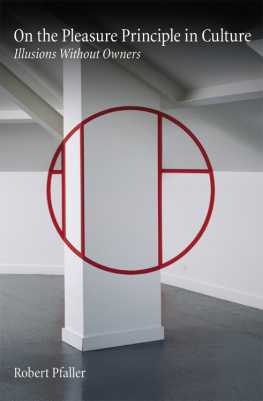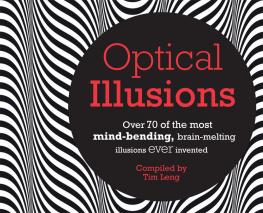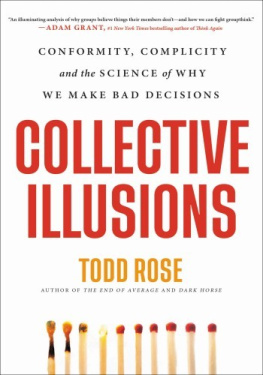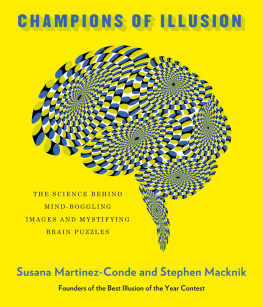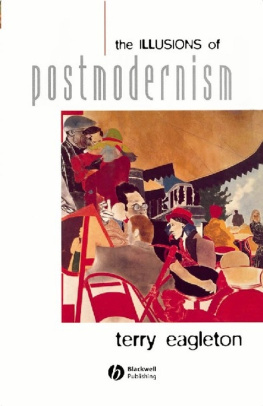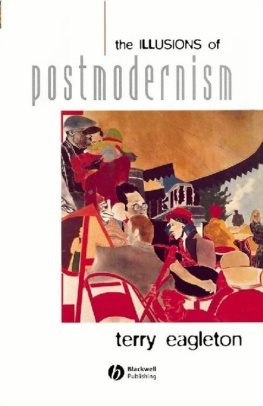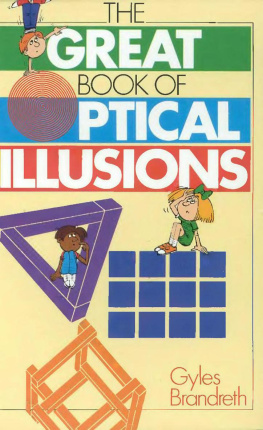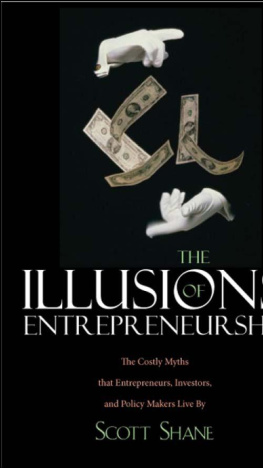Imagine youre sitting in a bar reading a newspaper, waiting for a friend. The friend arrives. He says hello, and then continues: Excuse me, can I have a quick look at your newspaper? I know its silly, but I just have to know the score from yesterdays game.
What we have here is a very special relationship between a subject and an illusion (in this case, the illusion that sports results really matter). The friend is in no way taken in by this illusion. On the contrary, he says that he knows quite well that it is silly, distancing himself from it. He does not claim allegiance to it, declare it as his illusion, or make any claim of ownership.
This is quite a different structure from the one we usually find. The ordinary relationship between an illusion and a subject is one in which the subject proudly attests to ownership by professing, for example, a belief in God, or in human reason, or in self-regulation of the markets. Such subjects agree completely with their illusions and proudly claim ownership of them. They would never put themselves at a distance from these illusions, for instance, by saying things such as, I know it is quite foolish, but I have to go to church now, or I know it is silly, but I believe in the self-regulation of markets.
It thus appears that we are dealing with two different types of illusion: illusions with owners and illusions maintained by people who are not their owners; illusions with subjects and illusions without subjects. We are thus faced with a distinction based on a difference in the forms of illusion rather than a difference in their content: it is a distinction based on the relationship between subject and illusion, on the different ways in which people refer to these illusions (regardless of their contents).
In some cases, people identify with their illusions, which they often emphasize by adding the assertion, I believe (in) that, I really do. On the contrary, in other cases, people know better; they know that the illusion is nonsense or something silly, and this knowledge seems to place an insurmountable gap between them and the illusion.
Whereas the first type is common and not difficult to detect, the second type of illusion, dismissed by knowing better, turns out to be
This seems to be precisely the case for the illusion that sports broadcasts, the horoscope and a number of other similar things are actually important: they are obviously not ones own illusions (because there is that better knowledge); thus, they are those of others. But which others? Children? Ancestors? Fools? If not those in the know, often we cannot really say who is meant to be their bearer. It is not always possible to find those who arent in the know. After all, who actually says, I believe in the horoscope, and I am proud of it? We are dealing here with a form of illusion for which we are sometimes unable to locate any believers at all. These illusions, which perhaps at first seem to be the others illusions, upon closer inspection prove to be illusions without subjects.
A further difficulty in recognizing the presence of these illusions without owners seems to stem from the assumption that knowledge cancels them out. If someone has access to relevant knowledge, as a result, they must be free of illusion. Perhaps they are aware of illusions without owners; but does that really mean that those illusions have power over them? Oddly enough, illusions without owners, without subjects, are evident only in those who know better, precisely because they are always the illusions of others. Angry people slam their fist down on the table although everyone knows that the table is not guilty. Computer users know perfectly well that their machines are not equipped to respond to encouragement, yet they nonetheless talk persistently with their electronic darlings (which are, incidentally, sometimes given pet names) as if they could respond; and when a machine experiences a major mechanical breakdown, many users even resort to crude acts of violence, inflicting damage, hitting the machine, or even going so far as throwing it out of the window, as if the punished PC were actually capable of redeeming itself in response to the painful experience. When faced with the power of such illusions, peoples knowledge does not seem to offer sufficient protection; quite the contrary, when considering the striking correlation between our knowing better and the illusions of others, we would even have to ask if knowing better does not somehow contribute to the power of these illusions. Is it possible that there are illusions that are not only not dismissed by knowing better, but are even first installed by it?
In addition to the problems of the bearer and the role of knowing better, the third difficulty is that of the compulsion that the illusions of others seem to exert. Although, due to their knowledge, bearers appear to be at a distance from these illusions, they are nonetheless obviously highly susceptible to them: I have to read the horoscope; I have to see the ballgame on television right now. Turning the key in the ignition of a car that doesnt immediately start, reasonable, civilized people, in particular, are often compelled to blurt out: Come on now, you can do it. Start!, and the like.never watch it later, from a recording. Why are the illusions of others more compelling than our own?

